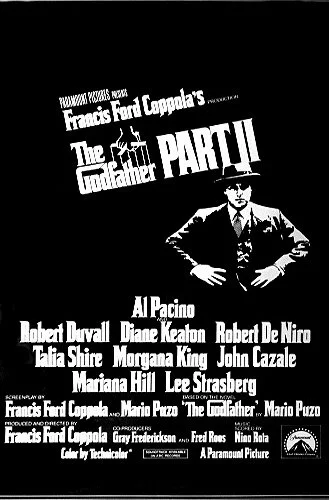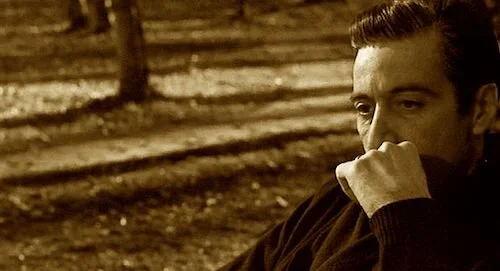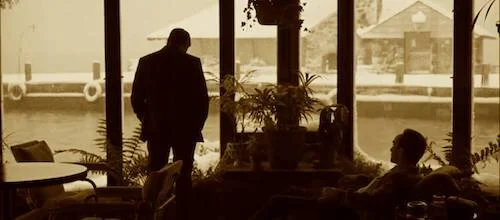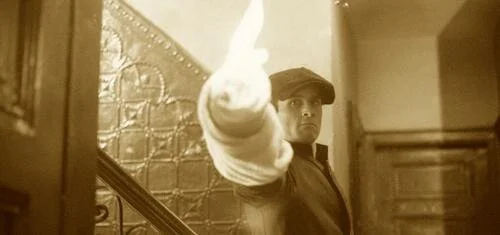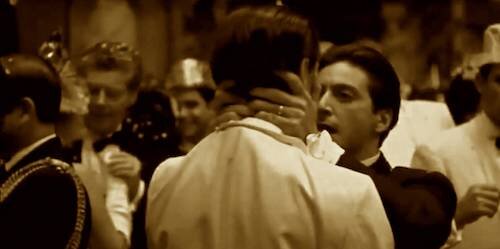The Godfather Part II
This review is a part of the Best Picture Project: a review of every single Academy Award winner for the Best Picture category. The Godfather Part II is the forty seventh Best Picture winner at the 1974 Academy Awards.
Previously (two years before), the world spent three hours watching Michael Corleone -- a beloved son -- shift into the devil himself in The Godfather. We saw how he began to run his mafia family his own way, as an outlier to his late father's usual tactics. Now, we have one of the great followups in film, with The Godfather Part II. It is both a prequel and a sequel: a telling of Vito Corleone's move to America after being chased out of Italy, and Michael's current predicament as don during '50s America. The world is adapting to Michael, and not the other way around anymore. In order to understand that, we had to see Vito take the same path Michael had, and discover what led Vito to become a kingpin when he did. Vito and Michael's objectives from Part I have now flipped in Part II.
Now, Michael's life is threatened much like his father's was a film before. Instead of hiding out in Italy for things to cool over, Michael bullets to Cuba to discover answers. Vito disguised his mob family as, well, a family. Michael barely cares about all of that, and is cold to any opposers of his policies. So, he is targeted really quickly. Instead of taking a second to figure it all out, he means to conduct business at the same time. Vito was powerful and respected. Michael is simply ruthless. He left his heart in Italy the first film, the day Apollonia was massacred.
The Godfather Part II is heavily interested in the thoughts of Michael Corleone.
Meanwhile, a young Vito makes his presence known in New York near the start of the 21st century. He is rather silent, and highly observational. He asks the big questions: who is in power, why, and how can I get some of this? He slowly transitions from being the shy, silent type to being the deadliest man on the block. The main difference is Vito stopped being so cold once his family was instilled (including a scene where he introduces a baby Michael to his soon-to-be empire, not that any of them knew this).
Michael never stops being cold. Ever. Vito mixed family and business. Michael feels absolutely nothing in the family department now. Missing his eldest brother, rarely seeing his now-estranged sister, being feared by his wife, having lost his true love in Apollonia, and now being marked by his brother Fredo. Michael ended Part 1 a changed man, but he loses every last bit of heart he once had in Part II, where as Vito does everything in his power to not lose his warmth despite his conditions.
Self reflections make up the bulk of The Godfather Part II’s sequencing.
Part I is a revelation, but Part II is even better. Both the prequel and the sequel tales are engrossing. Slapping each story together only makes Part II a fable of morality; the never ending sin in American industries, the results in letting go of hope, and the progression of crime versus the regression of sanctity. Part I ended in a baptism: the cleansing of evil out of an innocent child.
Part II starts with a ceremonial communion: the changing of a boy into a man. These rites of passage are not coincidental. Michael acknowledges the change in the Corleone family through a baptism. Here, he's merely claiming that Corleones will continue to have power for years to come. There will always be a next in line. During the film's climactic revelation with his wife Kay, Michael is not upset by loss, but by the removal of power.
A young Vito Corleone making his mark.
Part II ends with a different type of tradition: birthday (Vito's before Part I begins). Michael reveals he is enlisting in the army, and every family member responds a different way (to avoid spoilers, I'll leave that for you to analyze). Part II's sequel storyline ends with the absolute corrosion of this same family, through death or the inability to forgive. From that birthday on, Michael was always treated like an outsider. Now, he has cemented that stigma, and rendered it true. He is the only Corleone that matters now, and family means nothing.
The ruination of a family makes Part II contrast Part I heavily.
The Godfather II takes everything that was great about the previous film and only makes it better. The story gets more complicated. The performances of those that struck around get stronger. The Corleone lore only gets more intriguing. Part II is an absolutely rare achievement where an already near perfect film gets revisited, and actually bested. It's no wonder that Part II was the first sequel to win Best Picture, in the same way that Part I winning originally is no surprise either. Part I began with the quote "I believe in America." Part II ends with Michael's disbelief in everyone and everything. We've reached the death of a spirit that was once wondrous and free. Michael not only became the thing he feared. He became worse than anyone else to ever do it.
Andreas Babiolakis has a Masters degree in Film and Photography Preservation and Collections management from Ryerson University, as well as a Bachelors degree in Cinema Studies from York University. His favourite times of year are the Criterion Collection flash sales and the annual Toronto International Film Festival.

